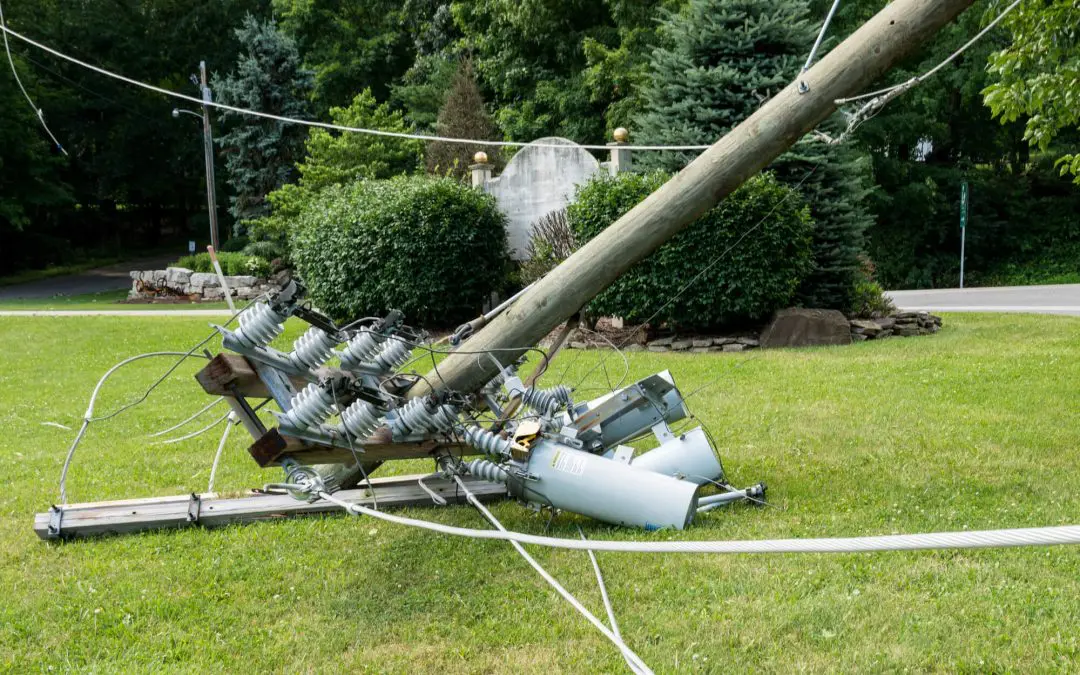Power outages can strike unexpectedly due to severe weather, equipment failure, or other unforeseen circumstances. When the lights go out, being prepared can make all the difference in maintaining safety, comfort, and peace of mind. Here are seven essential ways to prepare for a power outage.
1. Create an Emergency Kit to Prepare for a Power Outage
Assemble an emergency kit containing essential items such as flashlights, batteries, candles, matches, a battery-powered or hand-crank radio, non-perishable food items, bottled water, and a first aid kit. Keep this kit in a readily accessible location known to all family members.
2. Develop a Family Emergency Plan
Establish a family emergency plan that outlines what to do in the event of a power outage. Identify safe meeting places both inside and outside the home, designate responsibilities for each family member, and ensure everyone knows how to safely operate emergency equipment such as generators or alternative heating sources.
3. Invest in Backup Power Sources to Prepare for a Power Outage
Consider investing in backup power sources such as portable generators or solar-powered chargers. These can provide temporary power for essential appliances or electronic devices during an outage. However, exercise caution when using generators to avoid carbon monoxide poisoning, and follow all safety guidelines provided by the manufacturer.
4. Prepare for a Power Outage by Stocking Up on Supplies
Stock up on essential supplies before a power outage occurs. This includes non-perishable food items, drinking water, prescription medications, and other necessities. Having an ample supply of these items on hand can help sustain you and your family until power is restored.
5. Protect Electronics and Appliances
Safeguard sensitive electronics and appliances by using surge protectors or unplugging them during a power outage. This can prevent damage caused by power surges when electricity is restored. Additionally, consider installing a whole-house surge protector to safeguard larger appliances and electrical systems.
6. Maintain Communication
Stay informed and connected with family, friends, and emergency services during a power outage. Keep a list of important phone numbers, including local utility companies and emergency contacts. Charge mobile phones and other electronic devices in advance, and consider investing in backup battery packs or solar chargers to keep them powered.
7. Practice Energy Conservation
Conserve energy to prolong the life of backup power sources and reduce strain on the electrical grid. Unplug non-essential devices and limit the use of high-energy appliances such as air conditioners or heaters. Use natural lighting during the day by opening blinds, and minimize opening refrigerators and freezers to preserve food.
By taking proactive steps to prepare for a power outage, you can minimize disruptions and ensure the safety and well-being of yourself and your loved ones. Remember to stay calm, stay informed, and work together as a family to navigate through any challenges that may arise. With careful planning and preparation, you can weather the storm – even when the lights go out.
Severe Weather FAQs
What should I include in a severe weather preparedness kit?
Your kit should include essentials such as non-perishable food, water, a flashlight, batteries, a first aid kit, medications, important documents, cash, and any necessary supplies for pets or family members with special needs.
What should I do if severe weather is approaching?
If severe weather is imminent, seek shelter immediately in a sturdy building, away from windows and doors. Follow any evacuation orders issued by local authorities and take your emergency kit with you.
How can I protect my home from severe weather damage?
Secure loose outdoor items, trim trees and shrubs, reinforce doors and windows, and consider installing storm shutters or impact-resistant windows. If you live in a flood-prone area, elevate appliances and valuable belongings and consider flood insurance.
What should I do after a severe weather event has passed?
After the danger has passed, assess your property for any damage and check on your neighbors, especially those who may need assistance. Follow local guidance regarding cleanup efforts and be cautious of hazards such as downed power lines or contaminated water.
Home Inspectors of Columbus offers inspections to homebuyers and sellers in the Chattahoochee Valley of Georgia. Contact us to schedule our services.

